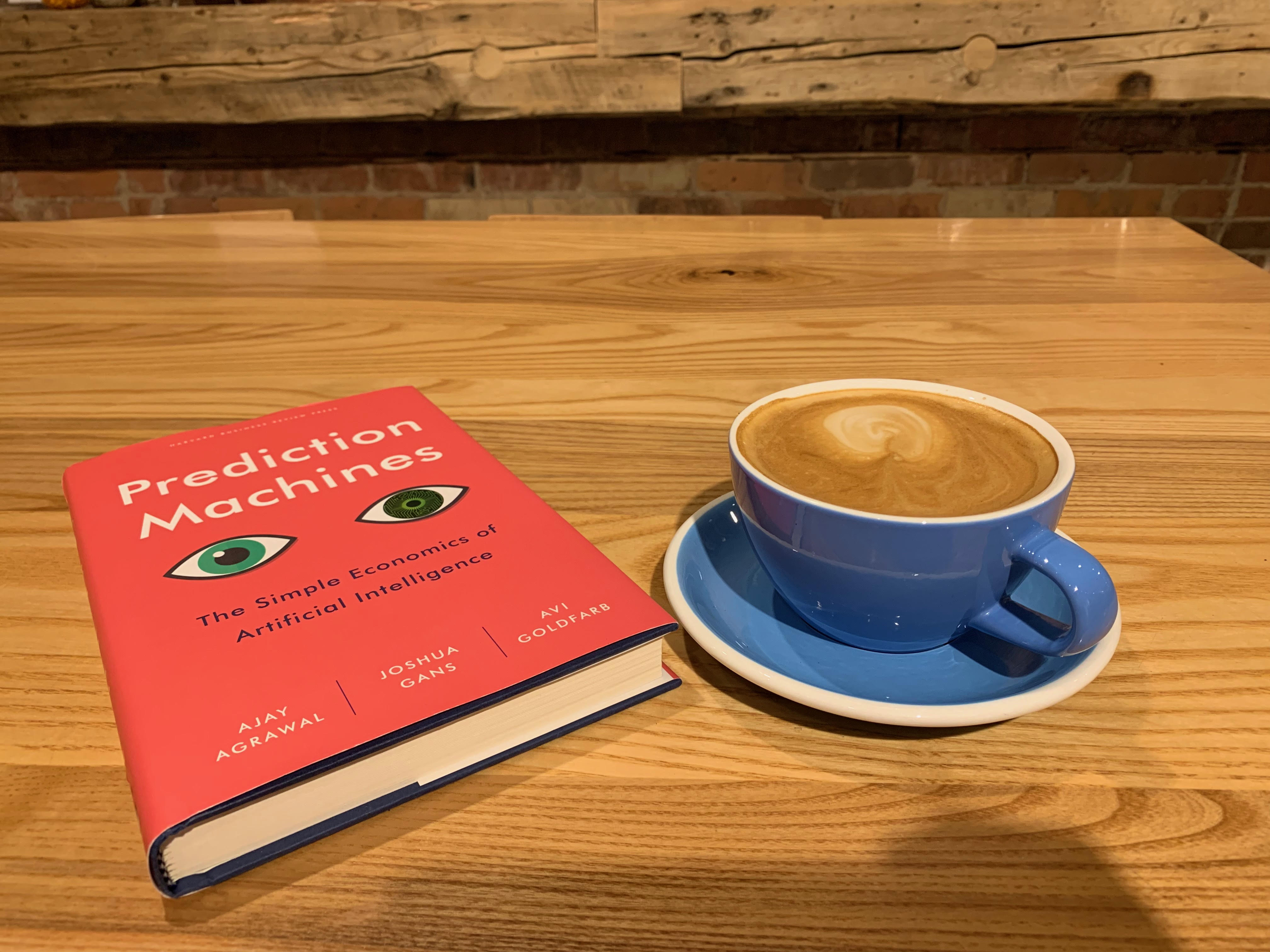First thoughts on Prediction Machines
Amazon is closer than ever to change its business model to ship-then-shop - bringing goods to home before they are ordered. I’m not going to be the first one to doubt that given they obtained a US patent on “anticipatory shipping”.

The trick is that despite all the data they have, the prediction accuracy is not high enough to make this business model profitable in the short term.
This is just an example of how prediction influences decision making beyond executing current daily tasks, it affects business strategies. A hint on how prediction is transforming organizations and society as it becomes cheaper and more accessible.
As the cost of prediction falls, more industries adopt it and we see it being applied in a wider range of activities. I remember it being used for image recognition at UCL and now it runs every time I look at my iPhone and it unlocks. There is no limit on how we can use it for the good of society.
This was a quick weekend-read on a bus ride of the first three chapters of the book “Prediction Machines – The Simple Economics of Artificial Intelligence” by 3 Professors at Toronto’s Rotman School of Management. It’s one of those page turners, easy to read and full of intelligence.
One big question is if machines start solving problems now reserved for humans, will we still have jobs? The answer is yes. There is still much thought, judgement and intelligence we can add. Michael Rhodes, Group Head, Innovation, Technology and Shared Services at TD, corroborates with this, as outlined in TD’s report on Responsible AI in Financial Services.
Happy to have found this article on Monday following my discovery of this book and celebrate my first year working at TD on Tuesday. I won’t predict anything for now but if I were to – this book is promising.
Recent Posts
-
Two Books and an Invitation to Learn about Systems Thinking
-
Books I read in 2025
-
Designing Agentic Systems with People in Mind
-
Using a Process Mindset to Drive Innovation with Agentic AI
-
Is Generative AI Weakening Our Critical Thinking?
-
Embracing the AI Shift: Copilot and the New Era of Work
-
Product Owner and Process Engineer
-
What I read in 2024
-
The Science of Choice
-
Rolling out Enterprise Architecture
-
7 Steps to Create Processes
-
The woman I am
-
Becoming a Runner
-
Business Process Overview